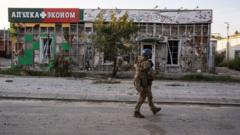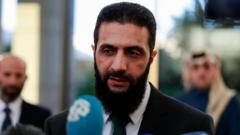President Aleksandr G. Lukashenko is expected to win his seventh consecutive term in Belarus, with all credible opposition sidelined, leaving only pro-government candidates in the race.
Lukashenko Eyes Another Term Amid Suppressed Opposition in Belarus

Lukashenko Eyes Another Term Amid Suppressed Opposition in Belarus
As Belarus prepares for presidential elections on Sunday, President Aleksandr G. Lukashenko faces no real challenges to his rule, echoing tactics seen in Russia.
As Belarus gears up for its presidential election on Sunday, the atmosphere is vastly different from the turbulent 2020 elections characterized by widespread protests and allegations of fraud. President Aleksandr G. Lukashenko, who has ruled since 1994, is confidently anticipated to secure his seventh consecutive term with minimal opposition.
This election is marked by a carefully curated selection of state-sanctioned candidates, all of whom are mandated to maintain a pro-Lukashenko stance. In stark contrast to previous elections where rivalry posed a legitimate threat, today’s political landscape features only those who express unwavering loyalty to the president, with legitimate challengers thwarted through imprisonment or exile.
Katia Glod, a nonresident fellow at the Center for European Policy Analysis, critiques the situation, noting the absence of genuine electoral choice. "All we have is this farcical facade of candidates who all come from pro-government parties," she stated, reflecting on the disheartening comparison to the current political climate in Russia.
Amidst this oppression, Lukashenko appears unconcerned about campaigning, instead focusing on public tasks such as demonstrating Belarusian products. Recent media portrayals have captured him in rural settings, showcasing his connection to traditional values while sidestepping the election process.
As the country prepares to vote, the long-standing label of "the last remaining true dictatorship in the heart of Europe" looks set to endure, as Lukashenko aims to solidify his leadership not just for his nation, but as a signal to Russia that his regime remains resilient.




















